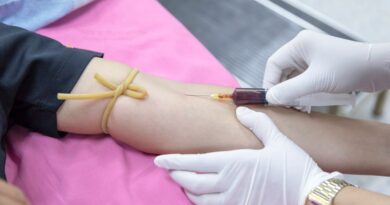Finding Purpose in Recovery: A Journey of Healing and Transformation
Recovery is a multifaceted journey that involves much more than just physical healing. It is a process that encompasses emotional, mental, and spiritual growth, allowing individuals to rediscover themselves and create a new life filled with meaning and purpose. In the realm of addiction recovery, finding purpose plays a crucial role in maintaining sobriety and building a fulfilling life beyond the grips of substance abuse. In this article, we will delve into the concept of finding purpose in recovery, exploring its significance, benefits, and practical strategies to help individuals on their path to healing.
The Significance of Purpose in Recovery

When individuals are struggling with addiction, their lives often become consumed by their substance use, leaving little room for self-discovery and personal growth. Finding purpose in recovery is essential because it provides individuals with a sense of direction, motivation, and hope for the future. Purpose gives meaning to the challenges they have faced and offers a vision of a brighter tomorrow. It serves as a guiding light that helps individuals navigate the ups and downs of recovery, empowering them to stay focused on their goals and aspirations.
Research has shown that individuals who have a strong sense of purpose are more likely to achieve long-term sobriety and overall well-being. Purpose acts as a buffer against relapse, as it gives individuals a reason to stay committed to their recovery journey. When individuals have a clear purpose, they are better equipped to cope with stress, manage cravings, and make healthier choices. Purpose also fosters a sense of self-worth and self-efficacy, boosting individuals’ confidence in their ability to overcome challenges and thrive in recovery.
Exploring Different Dimensions of Purpose in Recovery

1. Self-Discovery and Identity
One of the key aspects of finding purpose in recovery is the process of self-discovery and identity formation. In addiction, individuals often lose touch with who they are and what they value, leading to a disconnect between their actions and their true selves. Through recovery, individuals have the opportunity to explore their values, beliefs, strengths, and passions, rediscovering the core aspects of their identity that may have been overshadowed by addiction.
By engaging in self-reflection, therapy, and self-care practices, individuals can uncover their authentic selves and align their actions with their values and goals. This process of self-discovery is instrumental in building a strong foundation for recovery and establishing a sense of purpose that is deeply rooted in one’s true self.
2. Contribution and Service
Another dimension of purpose in recovery is the role of contribution and service to others. Giving back to the community, helping those in need, and making a positive impact on the world can bring a sense of fulfillment and purpose to individuals in recovery. By engaging in acts of service, individuals not only benefit others but also experience a profound sense of connection, gratitude, and altruism.
Volunteering, mentoring, or participating in advocacy work allows individuals to use their strengths and experiences to make a difference in the lives of others, reinforcing their sense of purpose and worth. Serving others also helps individuals cultivate empathy, compassion, and resilience, which are essential qualities for maintaining long-term recovery.
3. Creativity and Expression
Creativity and self-expression can also play a vital role in finding purpose in recovery. Engaging in artistic pursuits, such as music, writing, painting, or dance, provides individuals with a creative outlet for their emotions, thoughts, and experiences. Creative expression allows individuals to channel their innermost feelings into tangible forms of art, fostering self-discovery, healing, and personal growth.
Through creative expression, individuals can explore new aspects of themselves, process past traumas, and cultivate a sense of meaning and purpose in their lives. Artistic endeavors not only provide a healthy way to cope with stress and emotions but also offer a platform for individuals to share their stories, connect with others, and inspire hope and healing in the recovery community.
4. Goal Setting and Achievement
Setting goals and working towards their achievement is a fundamental aspect of finding purpose in recovery. Goals provide individuals with a sense of direction, focus, and motivation to stay on track with their recovery journey. Whether it is completing a treatment program, pursuing education or career aspirations, or maintaining healthy relationships, setting goals can help individuals establish a roadmap for their future and take meaningful steps towards creating a fulfilling life in recovery.
Goal achievement not only builds individuals’ confidence and self-esteem but also reinforces their sense of purpose and accomplishment. Celebrating small victories along the way can boost individuals’ motivation and resilience, encouraging them to continue striving for personal growth and success in recovery.
Practical Strategies for Finding Purpose in Recovery

While the concept of finding purpose in recovery may seem abstract or daunting, there are practical strategies that individuals can implement to cultivate a sense of purpose in their lives. Here are some actionable steps to help individuals embark on their journey of finding purpose in recovery:
1. Identify Your Values and Passions
Take time to reflect on your core values, beliefs, and passions. What matters most to you? What brings you joy and fulfillment? By identifying your values and passions, you can align your actions with your true self and cultivate a sense of purpose that is meaningful and authentic to you.
2. Set Meaningful Goals
Establish short-term and long-term goals that are aligned with your values and aspirations. Whether it is improving your health, pursuing education or career goals, or strengthening relationships, setting goals can provide you with a sense of purpose and direction in your recovery journey.
3. Engage in Activities That Bring You Joy
Explore different activities, hobbies, and interests that bring you joy and fulfillment. Whether it is gardening, playing music, or volunteering in your community, engaging in activities that resonate with you can help you discover new passions and cultivate a sense of purpose in your life.
4. Connect with Supportive Communities
Build a strong support network of family, friends, peers, and mentors who can encourage and empower you on your journey of finding purpose in recovery. Connecting with like-minded individuals and supportive communities can provide you with the motivation, inspiration, and guidance you need to stay committed to your goals and aspirations.
5. Practice Gratitude and Mindfulness
Cultivate a practice of gratitude and mindfulness to stay present, appreciative, and aware of the blessings in your life. By focusing on the positive aspects of your recovery journey and practicing self-care, you can nurture a sense of purpose and fulfillment that is grounded in gratitude and mindfulness.
Common Misconceptions About Finding Purpose in Recovery

Despite the numerous benefits of finding purpose in recovery, there are some common misconceptions that may hinder individuals from embracing this concept fully. One of the misconceptions is that purpose in recovery is a one-size-fits-all solution. In reality, purpose is a deeply personal and individualized experience that varies from person to person. Each individual’s journey of finding purpose is unique and should be tailored to their own values, aspirations, and strengths.
Another misconception is that purpose in recovery is a static or fixed concept. In truth, purpose is a dynamic and evolving aspect of recovery that may change over time as individuals grow, learn, and adapt to new circumstances. It is important for individuals in recovery to be open to exploring different dimensions of purpose and allowing their sense of purpose to evolve organically as they progress in their journey of healing and transformation.
Conclusion: Embracing Purpose on the Road to Recovery
In conclusion, finding purpose in recovery is a transformative journey that can empower individuals to heal, grow, and thrive beyond addiction. By exploring different dimensions of purpose, such as self-discovery, contribution, creativity, and goal setting, individuals can cultivate a sense of direction, motivation, and fulfillment that sustains their recovery journey. Through practical strategies, support networks, and self-care practices, individuals can embark on a path of healing and transformation that leads to a life filled with purpose, meaning, and joy.
As individuals in recovery embrace the power of purpose, they can unlock their full potential, overcome obstacles, and create a future that is rich in possibilities and opportunities. By recognizing the significance of purpose in recovery and taking intentional steps to cultivate purpose in their lives, individuals can embark on a journey of self-discovery, empowerment, and resilience that paves the way for a brighter tomorrow.
To wrap things up, finding purpose in recovery is not just about achieving sobriety; it is about rediscovering oneself, reclaiming one’s identity, and creating a life that is deeply meaningful and fulfilling. It is a journey of healing and transformation that requires courage, commitment, and resilience, but the rewards of finding purpose in recovery are immeasurable and life-changing. Let us embrace the power of purpose on the road to recovery and embark on a path of self-discovery, growth, and fulfillment that leads to a life of purpose, joy, and well-being.




